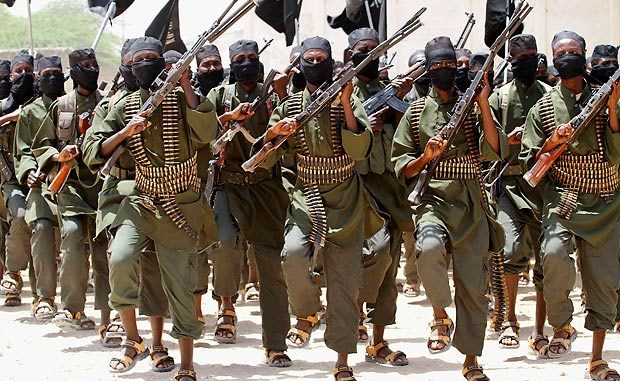
An overnight U.S. precision airstrikes on two Islamic State of Iraq and the Levant training camps near Sirte, Libya, are estimated to have killed more than 80 enemy fighters, Secretary of the U.S. Department of Defence, Ash Carter said.
Carter told reporters at the Pentagon that the airstrikes were vital in the American and coalition forces’ campaign to “deal ISIL the lasting defeat it deserves”.
“Importantly, these strikes were directed against some of ISIL’s external plotters, who were actively planning operations against our allies in Europe,” Carter noted.
“These were critically important strikes for our campaign and a clear example of our enduring commitment to destroy ISIL’s cancer — not only in Iraq and Syria, but everywhere it emerges.”
He said many of the estimated dead were fighters who had converged on the camps after fleeing from local partner forces that cleared Sirte last month with U.S. help.
Sirte is nearly 28 miles southwest of the training camps that were struck last night.
Pentagon Press Secretary Peter Cook also said the operation involved the U.S. in conjunction with its partners and Libya’s Government of National Accord.
“The fighters training in these camps posed a security risk to Libya, its neighbours, our allies in Africa and Europe, and to the United States and its interests,” he said.
As the U.S. assessment of the airstrikes in Libya continues, Cook said the initial analysis is that the strikes were successful in destroying the camps, and their destruction will degrade ISIL’s ability to threaten the Libyan people or disrupt efforts to stabilise Sirte after its liberation.
“Two U.S. Air Force B-2 Spirit bombers, which took off from Whiteman Air Force Base, Missouri, primarily conducted the joint direct attack munitions hit both camps,’’ the press secretary said.
“The use of the B-2 demonstrates the capability of the United States to deliver decisive precision force to the Air Force’s Global Strike Command over a great distance,” he noted.
He added that the use of the bombers was a decision by commanders, given the capabilities of the platform and the requirements of the mission.
The spokesman showed surveillance video at one of the camps where he described ISIL members as moving equipment such as homemade bombs and shells.
“We have been watching the training camps for some time,” he added.
He also confirmed the death of Abu Anas al-Iraqi, a member of ISIL’s senior leadership council, following a raid on Jan. 8 as the terrorist traveled to Raqqa.
“Al-Iraqi was a long-time associate of ISIL’s senior leadership, dating back to its origins of Al-Qaeda in Iraq. He oversaw media and financial operations and was a member of ISIL leader Abu Bakr al-Baghdadi’s inner circle,” Cook said.
Before 2007, al-Iraqi was chief propagandist for al-Qaeda in Iraq and incited and directed attacks against U.S. and coalition forces in Iraq, the press secretary added.
“His death is a reminder to ISIL’s leadership that they will find no shelter anywhere on the battlefield. And as Secretary Carter just described, the coalition and our local partners have seized every opportunity to accelerate ISIL’s defeat.
“The events of the last 24 hours certainly demonstrate that,” Cook said.
According to Cook, two senior al-Qaeda operatives were killed recently in separate U.S. airstrikes in Syria.
“Mohammad Habib Boussadoun al-Tunisi, an al-Qaeda external operations leader, was killed by a U.S. precision airstrike Jan. 17 near Idlib, Syria,’’ Cook said in a statement.
“The deceased terrorist, a Tunisian, was involved in extremist facilitation and external operations and has been connected to terrorist plots to attack Western targets.
“The terrorist arrived in Syria in 2014 after spending several years in countries across Europe and the Middle East, where he maintained ties with multiple extremists,” Cook said.
The Pentagon official added that the terrorist’s death would degrade al-Qaeda’s pool of experienced, well-connected facilitators and fighters with external operations experience.
Cook said U.S. forces also killed Abd al-Jalil al-Muslimi, an al-Qaeda facilitator, in a Jan. 12 precision airstrike near Saraqib, Syria.
“Muslimi, a Tunisian, was trained by the Taliban in the late 1990s, when he facilitated extremist travel for the terror group.
“He had extensive and long-standing ties to numerous al-Qaida external operations planners and terrorists.”
He said Muslimi’s death will degrade Al-Qaeda in Syria’s access to that cadre of veteran plotters, which will likely disrupt its ongoing terror plotting.
“Muslimi’s role will be difficult for al-Qaeda to fill and the United States will continue to take action to deny these terrorists a safe haven in Syria from which to plot to attack the United States, its allies or its interests.”
Source: NAN